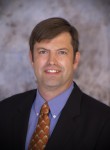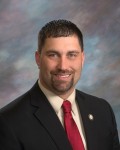 Greetings from Pierre. This week, I will provide an update on a few bills of interest as well as an update on the Appropriation budget hearings.
Greetings from Pierre. This week, I will provide an update on a few bills of interest as well as an update on the Appropriation budget hearings.
A reoccurring theme this session has been the need for more skilled workers in South Dakota. We have workforce shortages in many areas of our economy. Even our state agencies struggle with recruitment. Higher wages in our neighboring states has been a contributing factor. Despite these shortages and low wages, some legislators are submitting bills that jeopardize workforce recruitment. HB 1197 and 1199 seek to strip local school teachers and higher-ed professionals of their collective bargaining rights. Keep in mind, unions in South Dakota have very little power and that neither school districts nor universities are supporting these bills. Collective bargaining can be a tool to ensure a competitive living wage. These bills send a message to potential job seekers that we don’t value education or job experience.
Last year’s ballot initiatives and constitutional amendments enacted policies that some lawmakers were unwilling to accept. The result was a repeal of IM-22 passed by the voters in 2016. This year, some legislators are trying to limit your voice at the ballot. HJR 1008, if passed, would require any constitutional amendment passed by the people of South Dakota to be approved by the legislature. SJR 1, if passed, would require a 55% majority for any amendment to the constitution. A constitutional amendment already requires more signatures than a ballot initiative. Both resolutions suggest that voters are not competent to make an informed decision. If legislators were doing a better job of listening to the voters, these resolutions, ballot measures and constitutional amendments wouldn’t be necessary.
In Appropriations, we heard budget requests from the Board of Regents. The universities budgets remain relatively flat compared to last year. Mike Rush, the executive director, emphasized the importance of funding a needs-based scholarship program. In South Dakota, we average about $14 per student. Surrounding states fund needs-based scholarships at an average of $1,000 per student. In order to adequately fund this program, Dr. Rush says we would need to appropriate approximately $3.3 million in funding each year. Keeping the cost of post-secondary education down is another way for this state to develop a stronger workforce. Having a robust needs-based scholarship could provide additional opportunities to students who could not otherwise afford a degree.
BOR also outlined legislation for facility construction and renovation. The USD Dakota Dome will be getting a face lift. The Dakota Dome was built in 1979 for $8.2 million and seats 10,000 people. This upgrade will be a $26 million renovation. The renovation will include an upgrade to bathroom facilities, additional seating and a new HVAC system. Improvements will also include upgrades to the exercise facility, classrooms and field functionality. The money for this project will come from bonds, donations and the higher education facilities fund.
The School for the Blind and Visually Impaired is building a new $13.5 million facility. HB 1071 will allow for the construction of a 50,000 square feet building. The new facility will include classrooms, gym, residential area, staff offices and a playground. The current facility is 55 years old and requires significant maintenance and repair. The building would require new lighting, HVAC and wiring to meet today’s electrical and technology standards. If the state would decide to renovate, it would be at the expense of taxpayers. The new facility would be paid for by a donation.
SB 50 will authorize the construction of the American Indian Student Center at SDSU. The current student center is located in the basement of another building. President Dunn made improving student services to Native Americans a priority. Because many native students come from poverty and troubled backgrounds, Dunn believes it is essential for these students have a secure and supportive place at the university to ensure a higher level of success. President Dunn cites the success of similar programs in states like Montana. The new facility will be paid for through $4 million in donations and a $500,000 expenditure from the School and Public Lands annual allocation.
It will be important to hear from you during session. I would appreciate your input on any issue or concern. You may email me at dan.ahlers@sdlegislature.gov.










